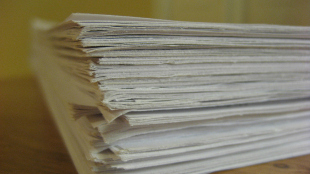 WIKIMEDIA, LOTYIn 2008, Simone Schnall, then at the University of Plymouth, published a paper in Psychological Science indicating that cleanliness is tied to less severe moral judgments. The findings were intriguing, and the study was selected as part of a larger effort to attempt to replicate certain research in the field. But as independent researchers failed to reproduce Schnall’s findings, the discussion—at first collegial—turned sour, and over the past few weeks the scientists involved have participated in a public dialog about what went wrong and how to improve the handling of replication attempts, especially when they fail.
WIKIMEDIA, LOTYIn 2008, Simone Schnall, then at the University of Plymouth, published a paper in Psychological Science indicating that cleanliness is tied to less severe moral judgments. The findings were intriguing, and the study was selected as part of a larger effort to attempt to replicate certain research in the field. But as independent researchers failed to reproduce Schnall’s findings, the discussion—at first collegial—turned sour, and over the past few weeks the scientists involved have participated in a public dialog about what went wrong and how to improve the handling of replication attempts, especially when they fail.
“I feel like a criminal suspect who has no right to a defense and there is no way to win: The accusations that come with a ‘failed’ replication can do great damage to my reputation, but if I challenge the findings I come across as a ‘sore loser,’” Schnall, now at the University of Cambridge, wrote online recently of her experience at the University of Cambridge’s psychology department blog.
Chief among her complaints was an initial denial to publish a comment alongside the failed replication attempt, which was to be published in a special issue of Social Psychology, because of space constraints. The guest editors of the special issue, Brian Nosek and Daniel Lakens, instead encouraged Schnall to write a blog post. “The academic currency ...





















